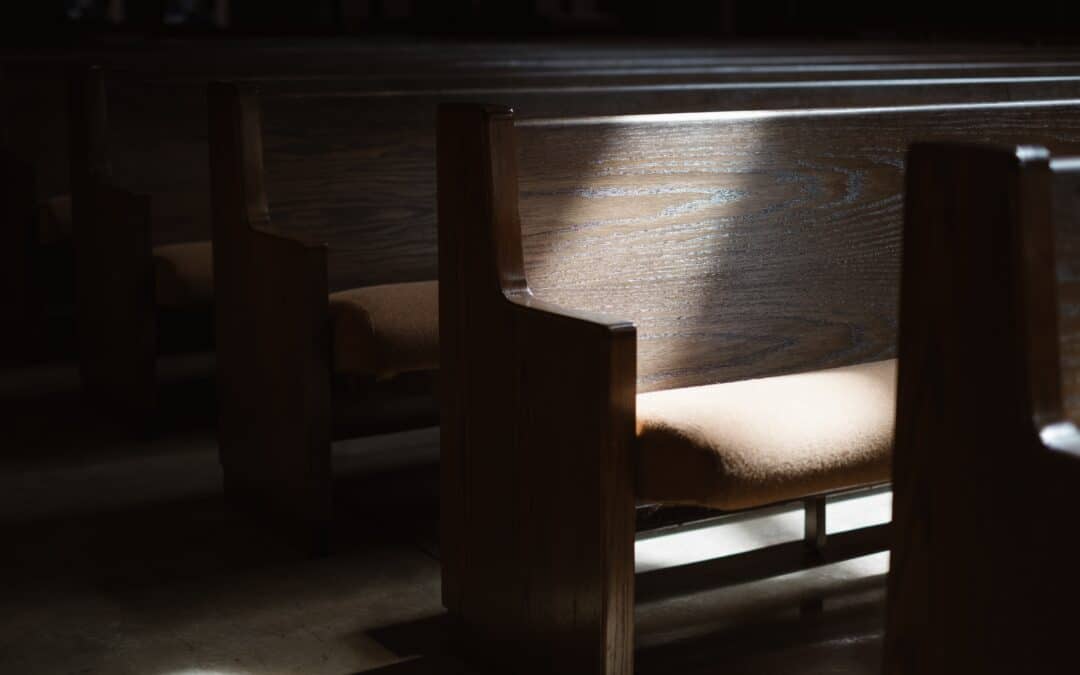People are leaving the church in record numbers and it doesn’t appear to be slowing down. Some leave Christianity altogether, but there’s also a growing number of people who don’t want anything to do with the church but still want to hang on to some of their Christian beliefs. They’re turning to faith deconstruction, a system of examining one’s beliefs and releasing the ones that do not align with who they believe God to be.
Doesn’t seem like that would stir up much conflict, but if you’ve been around here for very long you already know that anti-deconstruction voices are really loud right now.
You’ve probably seen people on social media, or on other places online sharing their opinions about the faith deconstruction movement with increasing frequency over the last few years. There is a wide range of opinions, from deep support of those fleeing harmful Christian cults to vitriol for what people see as abandoning the church and God. Changes are afoot across the globe, but within the states, more and more people are claiming ‘none’ in their affiliation box, or checking other faiths, as they explore spirituality and other traditions. Recently, there’s been an increase in high-profile Christians leaving Christianity and a correlating rise in faith deconstruction coaches and therapists offering to help people navigate this change of faith and living. Alongside this is conservative evangelicals warning against the slippery slope of the deconstruction movement that leads to losing one’s faith.
With all the conflicting opinions, you may wonder if deconstruction is a good thing, and if it is, why so many people are speaking out against it?
First, if you’re deeply embedded in toxic religion (like almost every single American Christian), then yes, deconstruction is a good thing because it has the potential to weed out all the false doctrines and bad teachings we’ve picked up along the way. Getting honest about the human-made parts of our belief system that are harmful and choosing to do faith differently reduces the racism, legalism, and abuse done in God’s name.
Moving away from white supremacy, legalism, and bad doctrines certainly seems like something that would move people toward a healthier faith, so why isn’t the church embracing deconstruction?
The short answer is that unhealthy systems are threatened by people getting healthy.
People begin to wonder if #churchhurt is caused by individuals making individual choices or if the system itself allows these actions to go unchecked. Those who do a little digging are quickly confronted with how unhealthy American Christianity is as a whole. They discover that both individual and systemic changes are needed to create equitable religious communities.
The only way to create an equitable religious community is to correct the imbalance of power that currently exists and that is threatening to those who benefit from the existing system.
The longer, more nuanced answer is that Christians have been taught that doubt, questioning, and exploring the expansiveness of our Creator are dangerous and lead to a person abandoning the church. When one person starts asking questions that feel out-of-bounds to their faith community, there’s an instant urge to offer “counsel” and “correction” before the questioner goes too far.
In many cases, people are worried about their friends and family deconstructing faith because they want to keep people from adopting harmful beliefs, which isn’t a bad thing. Where that concern becomes misguided is when Christians leverage shame, threatened loss of community, and gaslighting to scare people away from exploring complex aspects of their faith. People who express genuine concern about the possibility of losing faith aren’t the ones who frustrate deconstructors. Rather, the lack of curiosity and assumption that preserving the person’s faith as it stands, is what the person needs most at this moment is what is frustrating to those deconstructing their faith.
What most deconstruction critics don’t realize is that their angry, dismissive, bullying responses simply confirm the need to challenge what is acceptable within the church.
Another common reason the faith deconstruction movement isn’t going away anytime soon is that many who agree the church needs to change insist that reforming the church’s stance on particular issues should be our priority. While updates are certainly needed, the symptoms of an abusive, unhealthy religious system may lessen the oppression of those being targeted by a specific symptom, but it doesn’t eliminate the rotten core of white supremacy, misogyny, genocide, and church-sanctioned violence against marginalized people.
People are hurting right now and much of that harm is done by a church with doctrines rooted in colonialism, white supremacy, and gender bias.
Insisting that people focus on overhauling the system that is harming them reflects one of the most traumatic pillars of an abuser. It puts equal responsibility for fixing a broken system on those who are being oppressed by that system, rather than stacking the majority of the responsibility on those who benefit from the oppression of others.
People who are pushed out of the church by toxic religion are not responsible for fixing her from the inside. That responsibility lies squarely on the shoulder of those holding an inordinate amount of power.
Calling for a reformation instead of a faith deconstruction movement also completely misses the point that reformation takes decades, if not centuries, to create large-scale change. You cannot change a system from within its walls unless you’re willing to relinquish the benefits you receive from the imbalance of power and oppression of others. So personal deconstruction is required to create the reformation.
The push-back against deconstruction is spearheaded by those who haven’t deconstructed and have significant influence in the current power structure. Apologists and talking heads trained to defend the gospel with intellect and power play have “declared war” on faith deconstruction with a cult-like fervor typically reserved for the most “threatening” movements like abolition and desegregation. This creates a black and white line in the sand that shouldn’t exist, and makes you wonder WHY they are reacting. Yes there is fear, but there is also power, money, and control at stake in many churches and those in leadership know this.
When the most powerful people and organizations are on the offensive against the faith deconstruction movement, it should cause us to take a step back and ask who has the most to lose if the movement dies out.
It’s certainly not God or the people on the margins that the church is supposed to be caring for.

Angela is a Faith Deconstruction Coach and host of The Deconstructing Faith Summit who helps people break free from toxic religious culture & empowers them to recover from #churchhurt. She has led online ministries for a decade, enjoys working with clients 1:1, in groups, and is a dynamic conference speaker. She’s a Lark’s Song Certified Life Coach who reaches thousands of people in 40+ countries each month on Facebook, IG, Twitter, Pinterest, and her blog.
She’s a firstborn, Enneagram 8, Gen Xer who loves to question everything. She holds a BA from Indiana Wesleyan and a Masters in Leadership from Wesley Seminary. Her graduate research project focused on leadership development and opportunities for Gen X women in the US church.
Angela and her unique online ministry are featured in Lyz Lenz’s 2019 book God Land: Story of Faith, Loss, and Renewal in Middle America. She has published articles in Hope for Women and HOPE is Now magazines. She has been featured in The New Republic, Publisher’s Today, and Religion News Service.
Her first book, Deconstructing Your Faith Without Losing Yourself, Will be published by Eerdmans in February 2023.
Angela is also a wife, mom to 5, and a proud resident of Marion, Indiana with her family when they’re not traveling the US in their RV.








